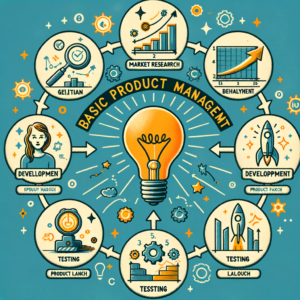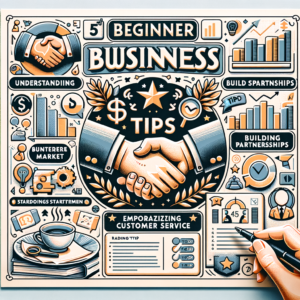The business development manger role refers to the activities and processes implemented to create and expand business opportunities for a company. It involves identifying potential clients, building relationships with them, and ultimately generating revenue and growth for the organization. The business development role requires strong communication and sales skills, as well as the ability to build relationships with potential customers. It requires creativity and the ability to think outside the box to come up with innovative strategies to create new revenue streams and generate new leads. Additionally, the role requires excellent problem-solving skills and conflict resolution skills.
The responsibilities of a business development professional may include:
1. Identifying new market opportunities and potential clients.
2. Conducting market research and analysis to understand customer needs and preferences.
3. Developing and implementing strategies to attract and acquire new customers.
4. Building and maintaining relationships with key stakeholders, such as clients, partners, and industry influencers.
5. Collaborating with internal teams, such as sales, marketing, and product development, to align business objectives and strategies.
6. Negotiating and closing deals with clients, including contract negotiations and pricing agreements with the sales department.
7. Monitoring market trends and competitor activities to identify potential threats or opportunities.
8. Developing and delivering presentations and proposals to potential clients.
9. Participating in industry events, conferences, and networking activities to promote the company’s brand and services.
10. Analyzing sales data and performance metrics to evaluate the effectiveness of business development strategies and make necessary adjustments.
Overall, the business development role focuses on driving growth and profitability by expanding the company’s customer base, exploring new markets, and fostering strategic partnerships.
Does the role of a business development manager differ from company to company?
Working in different types of companies can have a profound influence on business development professionals. In startups, for example, the environment is dynamic and fast-paced, requiring professionals to take on multiple responsibilities and directly contribute to the company’s growth trajectory. They are involved in various aspects of the business, including securing funding, forging strategic partnerships, and expanding the customer base.
In contrast, enterprise-level organizations offer a more structured and established framework. Business development managers in these companies concentrate on identifying new markets, cultivating strategic alliances, and driving overall business growth. They play a crucial role in navigating the path to success by leveraging their expertise to identify opportunities, develop effective strategies, and foster long-term relationships with key stakeholders.
Regardless of the type of company, business development professionals must possess a diverse skill set to excel in their roles. They need to be adaptable, innovative, and possess strong communication and negotiation skills. In addition, they should possess a thorough understanding of market trends, competitor analysis, and customer needs in order to identify and capitalize on growth opportunities.
To be successful in business development, professionals must be proactive, strategic, and results-oriented. It is essential that they constantly seek out new opportunities, form meaningful partnerships, and drive revenue growth. Professionals in business development can make a significant impact on an organization’s overall success and growth by successfully navigating the unique challenges and opportunities presented by different types of companies.

1. The difference between working in a startup, enterprise and traditional companies
Startups, enterprises, and traditional companies each offer unique environments and opportunities to business development professionals. Understanding the differences can help individuals navigate their career choices effectively.
Startups are known for their dynamic, fast-paced nature. Business development professionals in startups often have a broader scope of responsibilities and are involved in various aspects of the business. They play a crucial role in shaping a company’s growth trajectory, from securing funding to building strategic partnerships and expanding the customer base. Startups offer the chance to work closely with founders and have a direct impact on the company’s success. However, the fast-paced nature can also mean higher levels of uncertainty and risk.
Enterprise-level organizations provide a more structured and established framework. Business development professionals in such companies focus on identifying new markets, developing strategic alliances, and implementing large-scale growth strategies. They often work closely with senior executives and have access to extensive resources and networks. Enterprises offer stability, established processes, and the opportunity to work on larger projects. However, decision-making processes may be more complex and bureaucracy may be more prevalent.
Traditional companies typically adopt a more conventional approach to their business development. Professionals in these organizations often concentrate on maintaining existing client relationships, exploring new markets, and identifying opportunities for expansion within their industry. Although growth may be slower than that of startups or enterprises, there is often stability and a strong foundation to build upon. Traditional companies can offer a more predictable work environment and establish industrial networks.
2. Business development: day-to-day job roles.
In today’s competitive business landscape, the role of a business development professional has become increasingly crucial. Business development encompasses a wide range of responsibilities aimed at driving growth and creating new opportunities for a company. From identifying potential clients and partnerships to negotiating deals and expanding market reach, business development professionals play a pivotal role in the success of an organization.
On a daily basis, business development professionals engage in activities such as market research, lead generation, networking, and relationship building. They are constantly looking for new business opportunities, analyzing market trends, and developing strategies to capitalize on them. Additionally, they collaborate with various teams within the organization, including sales, marketing, and product development, to ensure alignment and maximize growth potential.
3. How can the right business development course be selected?
For individuals seeking to enhance their skills and advance their careers in business development, selecting the right course is essential. In choosing a course, it is important to consider the following factors:
a) Relevance: Ensure that the course aligns with your specific career goals and the industry in which you are interested. Look for courses that cover essential topics such as market research, strategic planning, negotiation skills, and relationship building, which are vital to business development professionals.
b) Credibility: Research on the course provider’s reputation and credibility Opt for courses offered by reputable institutions, industry experts, or recognized professional organizations. Check for reviews and testimonials from previous participants to assess the quality and effectiveness of the course.
Startups, enterprises, and traditional companies depend on an individual’s preferences, career goals, and risk tolerance. Startups offer the excitement of being part of a rapidly growing venture and the opportunity to make a significant impact. Enterprises provide stability, resources, and the chance to work on larger-scale projects. Traditional companies offer a more established and predictable environment.
In addition, you can get more knowledge here on E-learn.guide about how to choose the right online course for you.
Best online course we recommend to start with.
When choosing the right business development course, there are several reputable online options available. “Business Development Foundations” by Linkedin. is our recommended course to consider start with.













